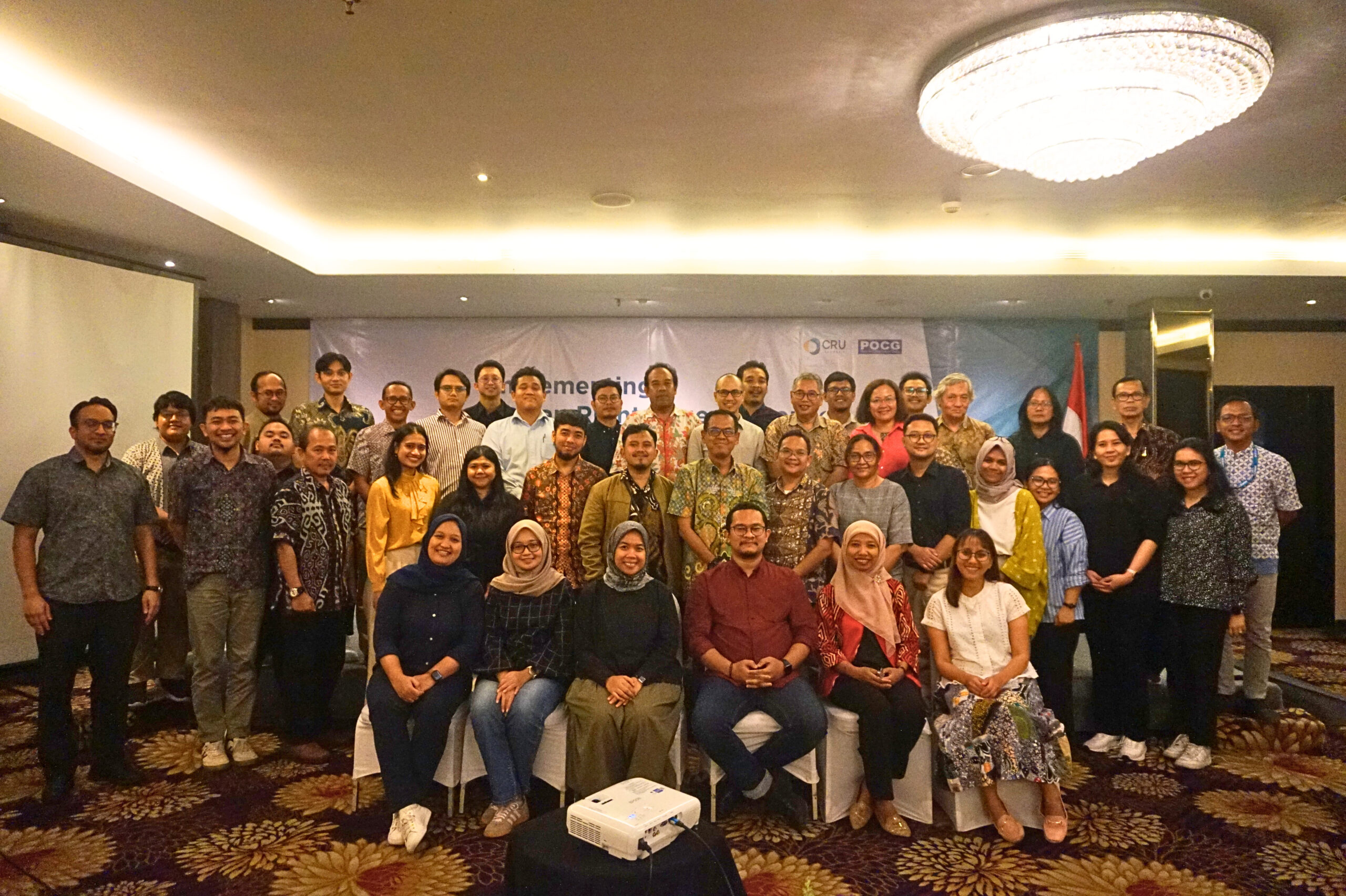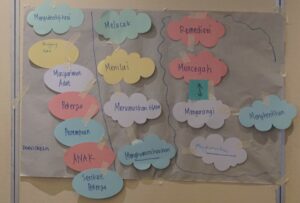CRU Indonesia Strengthens Sustainable Business Practices Through Human Rights Due Diligence (HRDD) Training
 17 November 2025
17 November 2025
[Jakarta, November 17, 2025] CRU Indonesia, in collaboration with The Palm Oil Collaboration Group (POCG) through the Social Issues Working Group (SIWG), delivered a training program on the Implementation of Human Rights Due Diligence (HRDD) and the Protection of Indigenous Peoples and Local Communities (IP&LC) Rights in the Palm Oil Sector. The training—which was designed exclusively for POCG-SIWG member companies—aimed to enhance participants’ understanding of HRDD principles, its stages, and practical application, including the integration of Free, Prior, and Informed Consent (FPIC), risk identification processes, as well as mitigation and remediation strategies for impacts experienced by indigenous and local communities. This initiative represents a meaningful step toward strengthening the application of human rights principles in sustainable business practices in Indonesia.
During the training, participants were equipped with skills to map risks, assess impacts, and develop mitigation plans that respond to human rights risks relevant to their company contexts. The program emphasized the importance of understanding human rights issues affecting local communities and residents surrounding company operations.
The session began with opening remarks by Taufiq Alimi, Executive Director of Proforest Southeast Asia. In his address, he highlighted that Indonesia’s palm oil industry currently stands at a crossroads—facing both global expectations and local realities. He emphasized that the discussions in this training were not merely about compliance, but a shared commitment to shaping a future that is fair, inclusive, and sustainable.
The HRDD training brought together 40 participants from 20 companies across the palm oil value chain, ranging from upstream producers to global consumer goods companies. Participants represented various divisions, including sustainability, grievance, corporate affairs, and production. This diversity created a collaborative learning environment where participants could deepen understanding and build a shared perspective on context-specific HRDD implementation in the palm oil sector.
“We believe that implementing human rights due diligence is not simply a compliance requirement, but an integral part of building a more responsible and resilient business in the long term,” said Arief Wicaksono, Director of CRU Indonesia. “This initiative demonstrates the strong commitment of Indonesia’s commodity sector to transform toward governance that upholds human rights.”
Training materials covered foundational concepts of human rights based on the UN Guiding Principles on Business and Human Rights (UNGPs), risk identification, and the importance of stakeholder engagement in HRDD implementation. Trainers and facilitators applied adult learning (andragogical) and experiential learning methods, supported by interactive group discussions, to reinforce participant understanding.
Maruli Sitompul, representing Nestlé Indonesia and a member of POCG, expressed his appreciation for the active participation of all attending companies, as well as the support provided by CRU Indonesia and POCG in facilitating this training. He underscored the importance of collaborative spirit in identifying and addressing shared challenges in the palm oil sector, with the goal of elevating industry practices to a higher standard.
At the end of the sessions, several participants voluntarily expressed their commitment to follow up on the training by developing internal human rights policies and enhancing grievance mechanisms to be more inclusive and transparent within their respective organizations.

Through this initiative, CRU Indonesia reaffirms its commitment to serving as a strategic partner in supporting the transformation of commodity sectors toward sustainable and human-rights–respecting business practices. Moving forward, CRU Indonesia and POCG will continue expanding HRDD application across other commodity sectors through collaborative learning approaches tailored to local contexts.
Photo: CRU Indonesia, 2025.
